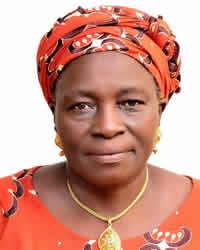Bajju, Kaje in Nigeria

Photo Source:
Anonymous
|
Send Joshua Project a map of this people group.
|
| People Name: | Bajju, Kaje |
| Country: | Nigeria |
| 10/40 Window: | Yes |
| Population: | 696,000 |
| World Population: | 696,000 |
| Primary Language: | Jju |
| Primary Religion: | Christianity |
| Christian Adherents: | 65.00 % |
| Evangelicals: | 20.00 % |
| Scripture: | New Testament |
| Ministry Resources: | Yes |
| Jesus Film: | Yes |
| Audio Recordings: | Yes |
| People Cluster: | Benue |
| Affinity Bloc: | Sub-Saharan Peoples |
| Progress Level: |
|
Introduction / History
Most Jju live in a rural area and work as farmers. Some left their homes to pursue higher education and city jobs. Although there is sporadic religious conflict, the Jju generally get along well with neighboring ethnic groups.
The Jju look to the paramount chief as their traditional ruler. When he is seated in his courtroom, visitors remove their shoes, bend low in respect, enter and keep their heads below his level.
The Jju alphabet has both double and single letters. Strong ("fortis") consonants, pronounced with more force, are written with double letters, as in the beginning of the name, Jju. The two beginning letters represent one sound; think of "ph" or "sh" in English. The equivalent weak ("lenis") consonants, pronounced more softly, are spelled with a single letter.
What Are Their Beliefs?
The Jju people first heard the Gospel from missionaries in the 1930s, and about 50 percent of them are Christians today. The remaining Jju community affiliates with Islam. Some also embrace African animistic traditions.
What Are Their Needs?
The Jju church is grateful for and uses their New Testament, published in 1982. The Jju New Testament sold out and is currently being reprinted. Their language is highly valued and used for church services. Pastors realize that to reach non-Christians, they need to have all of God's Word. Muslims in the area can more readily relate to the concepts and history presented in the Old Testament — and this can be a bridge to help people understand the message of the New Testament too.